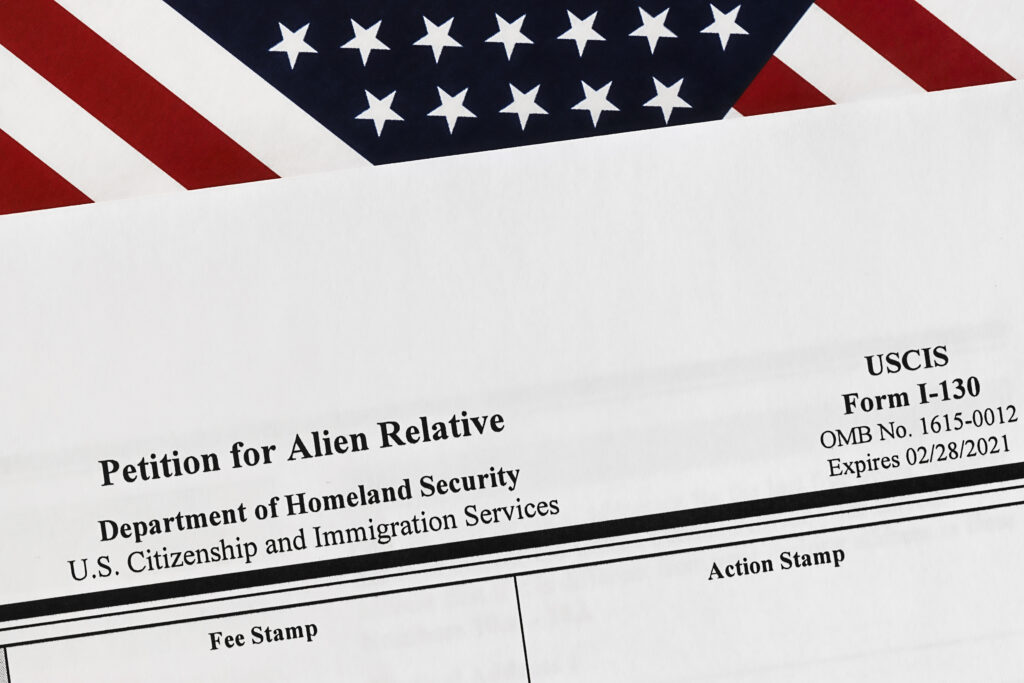

Are you a United States citizen looking to bring your parents to live with you in the land of opportunity? Sponsoring your parents for US citizenship can be a lengthy and complicated process, but it is achievable. With the proper guidance and understanding of the legal requirements, you can successfully navigate the process and reunite with your loved ones.

Permanent residency status grants your parents the rights and privileges of living and working in the United States. Green cards are only valid for incremental terms but is renewable indefinitely. Green card holders can access quality healthcare, educational opportunities, employment benefits, travel to other countries with fewer encumbrances, and even apply for US citizenship if they meet the eligibility requirements after five years. Immigrant visas for immediate relatives, such as your parents, unmarried children, or spouses, are considered a priority visa category for USCIS and thus, there is no backlog on visa availability like many other categories.
To be eligible to sponsor your parents for an immigrant visa, you first need to make sure you meet the requirements to sponsor a potential immigrant family member:
To be eligible to sponsor your parent, you first need to make sure you meet the requirements to sponsor a potential immigrant family member:
You are NOT allowed to submit Form I-130 for individuals falling into the following categories:

– File form I-130
– Submit Supporting Documentation with Form I-130 (This could include a birth certificate, marriage license, or other documents proving the family connection.)
– File the I-485 application to adjust status (In some cases, a parent can file the I-130 and the I-485 concurrently.)
– Submit an affidavit of support for each parent you sponsor
– If your parents have filed Form I-485 to adjust their status to permanent residency while in the United States, they can request an Employment Authorization Document (EAD) and travel authorization or Advanced Parole (AP) while their case is still pending. To apply for travel authorization, they should file Form I-131, Application for Travel Document. They should use Form I-765, Application for Employment Authorization, for employment authorization.
– File form I-130
– Submit Supporting Documentation with Form I-130 (This could include birth certificates, marriage licenses, or other documents proving the family connection)
– Upon I-130 approval, the case will be forwarded to the National Visa Center (NVC), an agency that coordinates Consular Processing cases for every US consulate around the world.
– Once at the NVC, your parent will need to file DS-260, Application for Immigrant Visa, and you will have to file I-864, Affidavit of Support
– Visa Interviews (These will take place at the US Consulate in their home country or country of residence.)
Petitioning for a stepfather or stepmother can also be done if they are married to your parent. You must provide a marriage certificate of your mother or father, showing that the stepparent was legally married to one of your parents before you turned 18 years old.
In this case, USCIS will consider your stepparent as a legal stepparent for immigration purposes, and you must meet the same eligibility requirements outlined above to petition them as a lawful permanent resident.
Once these requirements are met, you can proceed with filing Form I-130 and the necessary supporting documents. As in the case of natural parents, USCIS will review your information and decide whether to approve or deny your application.
If your parents were never married, there is a higher legal threshold to prove there is a legitimate parent/child relationship and that it was formed before you, the child, turned 18.
In this case, you may need to provide additional evidence of paternity, such as your parents civil marriage certificate or affidavits from both parents showing that they acknowledge the child is theirs and agreeing to be financially responsible for them. You may also need to provide a court order or other official documents depending on the circumstances. Additionally, if your parent has another biological child, you may need to provide additional evidence that you are part of the same parent-child relationship.
Once these requirements are met, you can file Form I-130 and the necessary supporting documents.
However, it is essential to note that even with the correct documentation, USCIS may still deny your petition if they cannot determine a legitimate parent/child relationship. It is strongly recommended that you reach out to a well-versed immigration attorney to understand the hurdles and legal strategies that can affect cases such as these.
Parents of US citizens are immediate relatives, meaning there is no wait time (aside from normal processing times) to be able to request residency for the foreign national parent once the U.S. citizen child is 21 years or older.
If your petition for a green card is denied, you have the right to file an appeal with the Board of Immigration Appeals (BIA) with form I-290(B). You must file your appeal within 30 days of receiving the denial notice.
You can submit a written statement explaining why you believe the decision made by USCIS should be reversed. The BIA will review your statement and the evidence from your case to decide if a different ruling should be made.
Appeals are often lengthy, complex processes and require extensive documentation. An experienced immigration attorney can help guide you through the process efficiently and effectively. Your lawyer can help provide valuable insight into the legal requirements, procedures, and potential outcomes of an appeal.
Yes, your parents can still hold valid green cards even if they don’t want to live in the US all year. The key is maintaining their permanent residence status by meeting specific physical presence requirements.
Suppose your parents fail to meet this requirement for an extended period. In that case, their green cards may be considered abandoned, and they may face removal proceedings. It is important to note that if your parents travel abroad for more than six months, they should notify USCIS of their intent to maintain residency in the US before departing and an immigration attorney should be consulted.

If you are interested in sponsoring your parent for residency, you should consult with an experienced family immigration attorney who can perform a thorough screening of your immigrant parent’s immigration history to ensure a proper filing. Bashyam Global offers personalized services to help you with the application process. Our team of experienced family immigration lawyers can guide you through the legal requirements and procedures for getting your parent’s green card approved. Contact us online or call us at 919-833-0840 today for a consultation.